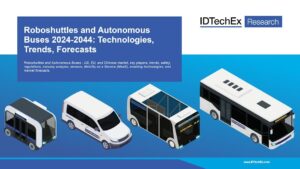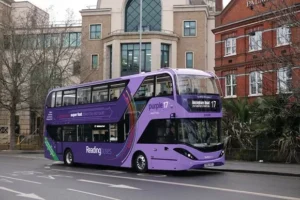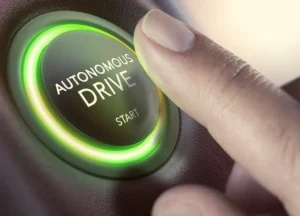The Automated Vehicle Bill, that was confirmed in yesterday’s Kings Speech could mean driverless buses and lorries could be on the road network by the end of the decade.
The King unveiled plans for an Automated Vehicle Bill that will ease restrictions on new computer-controlled vehicles where humans are mere passengers.
It will seek to over-ride fears about safety, arguing that by removing ‘human error’ to blame for many crashes it will actually make the roads safer, reports Daily Mail Online.
The legislation will include specific legal protection for passengers, with the company that owns the vehicle responsible for the way it drives.
It could lead to a major expansion in driverless vehicle use, with applications in areas including grocery deliveries, farming and public transport, said the Daily Mail Online report.
A spokesman for the all-party parliamentary group (APPG) for self-driving cars told the newspaper: ‘It could mean AV (automated vehicle) companies operating commercial services to the public by the end of the decade, as regulations go through consultations and testing processes.’
But AA president Edmund King said: ‘The plans to introduce self-driving vehicles provide the opportunity for more efficient travel, but safety must be paramount when rolled out onto UK roads.
Driverless buses have been operating in Sweden since 2018. It has no steering wheel, and runs at a speed of 20 kilometers an hour, using GPS and sensors to ensure it follows the current route. A staff member is on board to take control in case of emergency.
rgency services, and avoidable casualties.’
Ministers argue that the market could be worth £41.7billion by 2035, and sustain a net creation of 38,000 jobs.
They also point out that human error was a factor in 88 per cent of all recorded collisions in Great Britain in 2021, said the Daily Mail Online report.
There have been concerns within the industry that the UK was falling behind other countries, such as the US, in terms of the extent to which self-driving technology can be used on public roads.
‘The bill gives immunity from prosecution when a self-driving vehicle is driving itself, given it does not make sense to then hold the person sat behind the wheel responsible,’ a government briefing on the law said.
‘Non-driving responsibilities however will still remain with that person, such as maintaining appropriate insurance for the vehicle and ensuring proper loading, as well as responsibility during any part of the journey where the person is driving.’
Alex Kendall, co-founder and chief executive of self-driving technology company Wayve, said: ‘Today’s announcement that the Government will bring forward legislation for self-driving signals to the global self-driving industry that the UK Government is committed to fostering innovation for the future of transport.
‘By setting out a clear path to commercialisation, new primary legislation for self-driving vehicles gives us the confidence to continue investing in R&D (research and development) and growing our talent base here in the UK.
‘We look forward to continuing to work with the Government to cement the UK’s role as a global centre of excellence for self-driving technology that will make our roads safer and unlock new growth.’
Responding to the Automated Vehicles Bill announced in the King’s Speech, Cllr Darren Rodwell, Transport spokesperson for the Local Government Association, said:
“Autonomous Vehicles have potential to dramatically improve people’s quality of life, especially in areas where bus services struggle to support them. It is important the law keeps up with new technology and trends in the way we travel.
“Councils will continue to prioritise safety and public health, regardless of mode of travel, alongside plans to keep roads congestion free, buses moving and make walking and cycling the first choice for short journeys to reduce carbon emissions.
“Councils are already leading the way in digitalising their Traffic Regulation Orders to manage their streets more effectively and efficiently, while preparing the ground for autonomous vehicles. It is important these changes end a long overdue, outdated and expensive requirement for these orders, and other council notices, to be published in local newspapers.
“Government also needs to act to help pedestrians and road users by regulating the estimated 750,000 private e-scooters already on our roads, the majority of which are used illegally and by banning pavement parking, which would make footpaths accessible to all parts of society.”
























